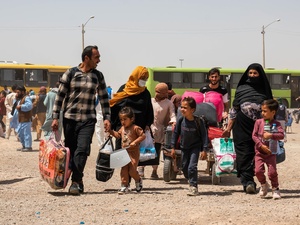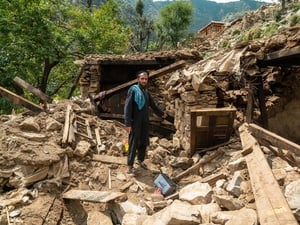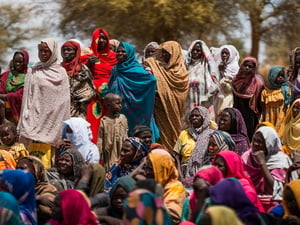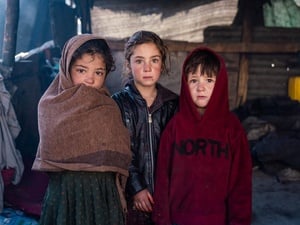Afghanistan: long-term funding needed
Afghanistan: long-term funding needed
In the last weeks, a number of agencies have launched urgent appeals for aid for Afghanistan. UNHCR itself has warned that despite a swell in refugee returns, aid reaching the Afghan people is still insufficient.
Since March 1, UNHCR-assisted refugee returns from surrounding countries stand at more than 484,000 and could cross the half million mark tomorrow. Meanwhile, more than 150,000 internally displaced Afghans (IDPs) have returned home with International Organization for Migration (IOM) and UNHCR assistance since late last year.
What's alarming is that many of these people are coming home to next to nothing, aside from the family packages of basic assistance items and three months of food aid they receive to help cushion their repatriation. Those packages will help get them through the first 12 weeks, but the international community needs to ensure their homecoming remains sustainable.
The U.N.'s World Food Programme warned last week that it faces a shortage of 75,000 metric tons of aid for Afghanistan in the period May-July. Today, the IOM announced that it is temporarily scaling back programmes that help displaced Afghans and returning refugees. This is already affecting the UNHCR-IOM-Afghan Interim Authority return programme.
While UNHCR recently registered 150,000 internally displaced Afghans sheltering in Kabul who said that they were ready to return home, and already planned to start return convoys last week, these movements have been delayed due to IOM's urgent funding needs. We are now looking at providing Kabul's IDPs with a travel grant in order to replace the transport that has been provided by IOM.
For many displaced Afghan families who want to return home this spring, the transport assistance long provided by IOM is preferable to a travel allowance. The funding situation may well work to prolong the plight of Afghanistan's up to 1 million displaced persons.
In the meantime, UNHCR will also take on the transport of returnees from Iran onwards from Herat, which IOM has temporarily halted - again likely by providing an increased travel grant.
In all, however, the warnings about aid for Afghanistan, so recently made by the Interim Authority's Reconstruction Minister, but also by key relief partners like UNHCR, WFP, and IOM, point to the urgent need for donors to move forward to ensure that Afghanistan receives the full amount of reconstruction aid pledged in Tokyo earlier this year as soon as possible to bridge the gap.









